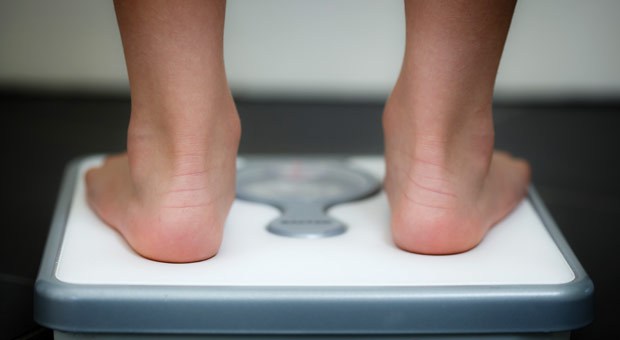
The battle between low-fat and low-carb diets has been a long one. For years, nutritionists have debated this issue, with some arguing that a low-fat diet is the way to go, while others insisting that a diet with restricted carbohydrates is better.
With each academic study on the subject, public sentiment seemed to sway one way or the other. In the 1980s and ’90s, low-fat diets were the fad. In recent years, low-carb diets became the thing. It was enough to give the modern-day dieter whiplash.
“A lot of people have very strong opinions about what matters for weight loss, and the physiological data upon which those beliefs are based are sometimes lacking,” study author Dr. Kevin Hall, a metabolism researcher at the National Institute of Diabetes and Digestive and Kidney Diseases, said in a statement.
Low-fat diet superior for fat loss
Seeking to settle the debate, Hall and his colleagues from the National Institutes of Health set up a very detailed experiment that allowed them to make direct comparisons of how these two dietary approaches stack up against each other in a controlled setting.
The researchers checked 19 obese adults (who were roughly the same weight and had the same body-mass index) into an inpatient unit at the NIH clinical center, for two-week increments.
For the first five days of each visit, the volunteers were given a baseline diet of 2,740 calories that was 50 percent carbohydrate, 35 percent fat and 15 percent protein. This wasn’t very different from what they were eating before. But for the following six days, they were given either a low-fat diet or a low-carb diet, each having 30 percent fewer calories. Each participant was also asked to exercise one hour a day on the treadmill.
Then the researchers put the volunteers in metabolic chambers — a sealed, climate-controlled room hooked up to a battery of recording and analyzing devices (kind of like the ones they use for lab rats) — for five days to see what would happen.
After analyzing everything from how much carbon dioxide and nitrogen they were releasing to their hormone and metabolite levels, the researchers concluded that calorie-per-calorie, low-fat diets beat out low-carb diets. During the study period, the minimum detectable difference in cumulative fat loss was 110 grams.
On average participants lost 463 grams on the low-fat diet vs. 245 grams on the low-carb diet, a difference that was statistically significant. The researchers projected out what might happen if they stuck to those diets for six months and found that the low-fat group would end up losing six more pounds on average than the low-carb group.
“In contrast to previous claims about a metabolic advantage of carbohydrate restriction for enhancing body fat loss our data and model simulations support the opposite conclusion,” Dr. Hall and his co-authors wrote in an article published this week in the journal Cell Metabolism.
No metabolic advantage to cutting carbs
The study appeared to be a response to recent theories about how low-carb diets work. Proponents have said that decreasing carbs decreases insulin secretion, which leads to increased fat oxidation and burning of calories.
But, the researchers wondered, “While the first law of thermodynamics requires that all calories are accounted, could it be true that reducing dietary fat without also reducing carbohydrates would have no effect on body fat? Could the metabolic and endocrine adaptations to carbohydrate restriction result in augmented body fat loss compared to an equal calorie reduction of dietary fat?”
As the researchers discovered, the answer to these questions was an unequivocal no.
“If you think a low-carb diet is going to give you some sort of metabolic advantage for losing fat, this study shows this is probably not true,” Hall told Healthline News.
So does this mean that if you’re on a low-carb diet that you should switch to a low-fat diet? Not necessarily.
The researchers acknowledge that “translation of our results to real-world weight-loss diets for treatment of obesity is limited,” as the design of their experiment relies on strict control of food intake — which “is unrealistic in free-living individuals,” they said.
Likewise Frank Hu, a professor of nutrition and epidemiology at Harvard T.H. Chan School of Public Health, told Healthline News that while the study was “rigorously conducted,” it “doesn’t really portray real life situations.”
“In real life,” Hu said, “people make choices and don’t always adhere to a diet that fosters weight loss over the long run.”
David L. Katz, founder of Yale University’s Prevention Research Center, emphasized that despite the fact that the study is down on fats, scientists still believe fats aren’t nearly as bad for us as we once thought.
“In my view, this is a reality check,” Katz told Forbes. “It does not invite us to go back to preferential fat-cutting, but it does invite us to get past the new folly of preferential carb-cutting. My hope is this study provides a nudge not from one nutrient fixation to another, but in that direction: Food, not nutrients.”
The takeaway: The most important part of dieting isn’t necessarily the kind of diet you chose when it comes to low-carb vs. low-fat, it’s whether you stick to it.


